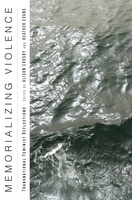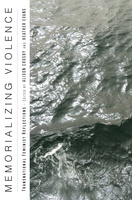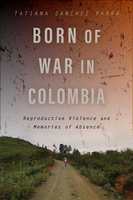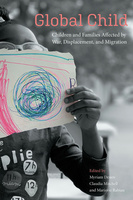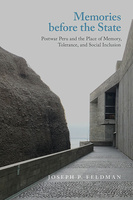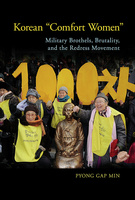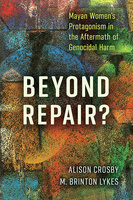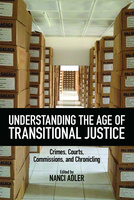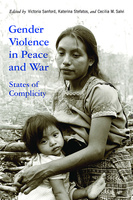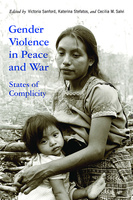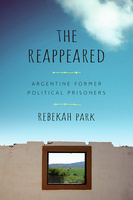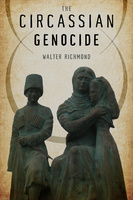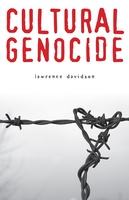Memorializing Violence
Transnational Feminist Reflections
This volume brings together feminist reflections on the transnational lives of memorializations to colonial, imperial, militarized, and state violence. It asks what’s at stake in memorializing amidst and against ongoing harm and injustice produced by white supremacist global capitalist empire.
Memorializing Violence
Transnational Feminist Reflections
This volume brings together feminist reflections on the transnational lives of memorializations to colonial, imperial, militarized, and state violence. It asks what’s at stake in memorializing amidst and against ongoing harm and injustice produced by white supremacist global capitalist empire.
Lifting the Shadow
Reshaping Memory, Race, and Slavery in U.S. Museums
Lifting the Shadow examines how the National Museum of African American History and Culture, Montgomery’s Legacy Museum and Tulsa’s Greenwood Rising are challenging the national narrative on slavery and race by placing racial oppression at the center of American history and linking historical slavery to contemporary racial injustice.
Genocide Studies
Pathways Ahead
In recent years, the world has been shaken by numerous events that have caused and continue to cause massive human suffering, from the COVID-19 pandemic to intrastate and interstate armed conflicts. These crises confound definition and label, but now is the time to think about current manifestations of genocide and those likely to emerge in the future
Genocide Studies
Pathways Ahead
In recent years, the world has been shaken by numerous events that have caused and continue to cause massive human suffering, from the COVID-19 pandemic to intrastate and interstate armed conflicts. These crises confound definition and label, but now is the time to think about current manifestations of genocide and those likely to emerge in the future
The United States and the Armenian Genocide
History, Memory, Politics
This is the first book to examine how and why the United States refused to officially acknowledge the 1915-17 Armenian Genocide until the early 2020s. Drawing from congressional records, rare newspapers, and interviews with lobbyists and decision-makers, historian Julien Zarifian reveals how genocide recognition became such a complex, politically sensitive issue.
Born of War in Colombia
Reproductive Violence and Memories of Absence
Born of War in Colombia examines how a past-oriented and harm-centered model of transitional justice has converged with a restricted notion of gendered victimhood and the patriarchal politics of reproduction to render the bodies of people born of conflict-related sexual violence unintelligible to those seeking to understand and address the consequences of war in Colombia.
Destroy Them Gradually
Displacement as Atrocity
Destroy Them Gradually reframes forced displacement as an annihilatory process, rather than as an event that precedes an atrocity. Displacement crimes are defined as the unique fusion of forced displacement with systemic deprivations of vital daily needs to destroy populations.
Being Human
Political Modernity and Hospitality in Kurdistan-Iraq
Being Human: Political Modernity and Hospitality in Kurdistan-Iraq is a unique work of anthropological hospitality that draws on historical sources, eyewitness testimonies, perpetrator testimony, archival documents, trial records, artwork, novels, and poetry, to engage with one of political modernity’s acts of genocide in Iraq under the Iraqi Baʿth state.
Global Child
Children and Families Affected by War, Displacement, and Migration
The Politics of Genocide
From the Genocide Convention to the Responsibility to Protect
Resonant Violence
Affect, Memory, and Activism in Post-Genocide Societies
Resonant Violence explores both the enduring impacts of genocidal violence and the varied ways in which states and grassroots collectives respond to and transform this violence through memory practices and grassroots activism. By calling upon lessons from Germany, Poland, Argentina, and the Indigenous United States, Resonant Violence demonstrates how ordinary individuals come together to engage with a violent past to pave the way for a less violent future.
From Bureaucracy to Bullets
Extreme Domicide and the Right to Home
Memories before the State
Postwar Peru and the Place of Memory, Tolerance, and Social Inclusion
Korean "Comfort Women"
Military Brothels, Brutality, and the Redress Movement
Arguably the most brutal crime committed by the Japanese military during the Asia-Pacific war was the forced mobilization of 50,000 to 200,000 Asian women to military brothels to sexually serve Japanese soldiers. Korean “Comfort Women” explores Korean comfort women’s brutal experiences and their residual marriage, family, economic, and healthcare problems. It also examines the transnational redress movement, demonstrating that the Japanese government has tried to conceal the crime of sexual slavery by resolving the issue with money alone.
The Complexity of Evil
Perpetration and Genocide
Acts of Repair
Justice, Truth, and the Politics of Memory in Argentina
Acts of Repair explores how ordinary people grapple with decades of political violence and genocide in Argentina--a history that includes the Holocaust, the political repression of the 1976-1983 dictatorship, and the 1994 AMIA bombing.
Phenomenal Justice
Violence and Morality in Argentina
Reluctant Interveners
America's Failed Responses to Genocide from Bosnia to Darfur
Becoming Rwandan
Education, Reconciliation, and the Making of a Post-Genocide Citizen
Beyond Repair?
Mayan Women’s Protagonism in the Aftermath of Genocidal Harm
Beyond Repair?
Mayan Women's Protagonism in the Aftermath of Genocidal Harm
Understanding the Age of Transitional Justice
Crimes, Courts, Commissions, and Chronicling
Understanding the Age of Transitional Justice
Crimes, Courts, Commissions, and Chronicling
A Rhetorical Crime
Genocide in the Geopolitical Discourse of the Cold War
Gender Violence in Peace and War
States of Complicity
Gender Violence in Peace and War
States of Complicity
Three Centuries of Conflict in East Timor
The Reappeared
Argentine Former Political Prisoners
Genocide as Social Practice
Reorganizing Society under the Nazis and Argentina's Military Juntas
Hidden Genocides
Power, Knowledge, Memory
Why are some cases of genocide prominently remembered while others are ignored, hidden, or denied? In this collection, contributors approach the question from a variety of perspectives and case studies, including the suppression of discussion about indigenous populations in the Americas and Australia, the reasons why the genocide of the Armenians, Assyrians, and Greeks long remained out of sight, and the violence that was the precursor to and the aftermath of the Holocaust.
Hidden Genocides
Power, Knowledge, Memory
Why are some cases of genocide prominently remembered while others are ignored, hidden, or denied? In this collection, contributors approach the question from a variety of perspectives and case studies, including the suppression of discussion about indigenous populations in the Americas and Australia, the reasons why the genocide of the Armenians, Assyrians, and Greeks long remained out of sight, and the violence that was the precursor to and the aftermath of the Holocaust.
The Circassian Genocide
This book chronicles the history of the war between Russia and Circassia, describes in detail the final genocidal campaign, and follows the Circassians in diaspora through five generations as they struggle to survive and return home. It updates the story to the present day as the Circassian community works to gain international recognition of the genocide as the region prepares for the 2014 Winter Olympics in Sochi, the site of the Russians’ final victory over the Circassians.
Rendition to Torture
Many Americans were surprised following the attacks of 9/11 at how easily the United States embraced torture as well as the supposedly lesser evil of cruel, inhuman, and degrading treatment. Extraordinary rendition—sending people captured in the “war on terror” to nations long counted among the world’s worst human rights violators—hid from the public eye cruel and bloody interrogations. In Rendition to Torture, Alan W. Clarke explains how the United States adopted torture as a matter of official policy; how and why it turned to extraordinary rendition as a way to outsource more extreme, mutilating forms of torture; and outlines the steps the United States took to hide its abuses.
Cultural Genocide
Cultural Genocide establishes a theoretical basis for understanding why groups can be readily brought to seek the elimination of out-groups using the tactic of cultural destruction. Lawrence Davidson applies his theory to four uses of cultural genocide, with two pre-Holocaust case studies and two post-Holocaust case studies. He examines the mechanisms that may be used to combat today’s cultural genocide as well as the contemporary social and political forces at work that must be overcome in the process.
Facing the Khmer Rouge
A Cambodian Journey
As a child growing up in Cambodia, Ronnie Yimsut played among the ruins of the Angkor Wat temples, surrounded by a close-knit community. As the Khmer Rouge gained power and began its genocidal reign of terror, his life became a nightmare. In this stunning memoir, Yimsut describes how, in the wake of death and destruction, he decides to live. Facing the Khmer Rouge shows Ronnie Yimsut’s personal quest to rehabilitate himself, make a new life in America, and then return to Cambodia to help rebuild the land of his birth.
We Cannot Forget
Interviews with Survivors of the 1994 Genocide in Rwanda
During a one-hundred-day period in 1994, Hutus murdered between half a million and a million Tutsi in Rwanda. The numbers are staggering; the methods of killing were unspeakable. Utilizing personal interviews with trauma survivors living in Rwandan cities, towns, and dusty villages, We Cannot Forget relates what happened during this period and what their lives were like both prior to and following the genocide.
Through powerful stories that are at once memorable, disturbing, and informative, readers gain a critical sense of the tensions and violence that preceded the genocide, how it erupted and was carried out, and what these people faced in the first sixteen years following the genocide.
We Cannot Forget
Interviews with Survivors of the 1994 Genocide in Rwanda
During a one-hundred-day period in 1994, Hutus murdered between half a million and a million Tutsi in Rwanda. The numbers are staggering; the methods of killing were unspeakable. Utilizing personal interviews with trauma survivors living in Rwandan cities, towns, and dusty villages, We Cannot Forget relates what happened during this period and what their lives were like both prior to and following the genocide.
Through powerful stories that are at once memorable, disturbing, and informative, readers gain a critical sense of the tensions and violence that preceded the genocide, how it erupted and was carried out, and what these people faced in the first sixteen years following the genocide.

